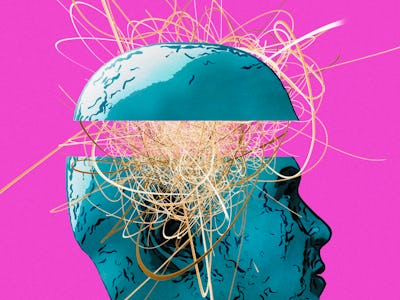"Harnessing Mental Clarity: Strategies to Navigate Information Overload"
Your brain is a phenomenal tool.
“Your time is limited, so don't waste it living someone else's life.”
Your brain will find whatever it is that you are looking for.
Your brain is a remarkable tool, capable of shaping the reality you experience.
However, certain habits may unknowingly be limiting their potential. In this exploration, we delve into seven toxic habits that could be hindering your brain’s optimal performance and provide actionable tools to train it for success.
1. Starting Your Day Too Slow:
The way you kick off your day sets the tone for what follows. Many inadvertently train their brains for sluggishness by engaging in slow morning routines. Instead, cultivate a proactive morning ritual:
Wake up with purpose.
Make your bed as a small accomplishment.
Hydrate to kickstart your metabolism.
Dive into your most crucial task promptly.
2. Consuming Too Much:
Information overload is a prevalent challenge in the digital age. The constant stream of data can lower standards and shift focus from education to mere entertainment. Optimize your brain’s performance by:
Prioritizing quality over quantity in information intake.
Applying the 80/20 principle to identify the most impactful information.
Training your brain to seek valuable and relevant content.
3. Doing Too Much:
Multitasking and spreading efforts across numerous priorities can hinder deep, productive work. Streamline your focus by:
Concentrating on no more than three priorities at a time.
Embracing batching to engage in deep, uninterrupted work.
Prioritizing quality over quantity in your endeavors.
4. Having No Vision or a 2x Vision:
A lack of a clear, ambitious vision limits your brain’s capacity for transformation. Elevate your aspirations by:
Developing a 10x vision that necessitates significant change and mastery.
Letting go of the security blanket of habitual behaviors.
Embracing seemingly impossible goals that challenge and propel you forward.
5. Failing to Rest:
Neglecting rest and recovery can have adverse effects on both physiological and psychological well-being. Optimize your brain’s performance by:
Establishing a balance between deep work and complete relaxation.
Embracing active recovery through enjoyable hobbies.
Recognizing the symbiotic relationship between physical and mental well-being.
6. Not Taking Time to Reflect:
Regular reflection on accomplishments and failures is essential for growth and learning. Cultivate a habit of reflection by:
Implementing an After Action Report (ARR) to proactively re-frame experiences.
Recognizing that memories are fluid reconstructions.
Shaping a more useful past through intentional reflection.
7. Not Engaging in Physical Activity:
Physical fitness directly influences mental acuity and creativity. Maximize your brain’s potential by:
Prioritizing both brain and body training for holistic well-being.
Understanding the symbiotic relationship between physical and mental performance.
Aiming for elite levels of both physical and mental fitness.
“…I don’t think you can do [the] five or six hours of working out a day — if you don’t have a clear goal or know why you’re doing it. If you just hang out at the gym and train for five or six hours a day without a goal, [doing that is] almost impossible.” — Arnold Schwarzenegger
Getting your fitness, strength, and stamina to a very high level will transfer over to having deep flow and focus in your mental work.
In conclusion, your brain is capable of extraordinary transformation. By identifying and addressing these toxic habits, you can unlock their full potential and achieve feats that may initially seem impossible. Embrace the journey of training your brain for success and watch as it evolves into a powerhouse of productivity and creativity.


Comments
Post a Comment